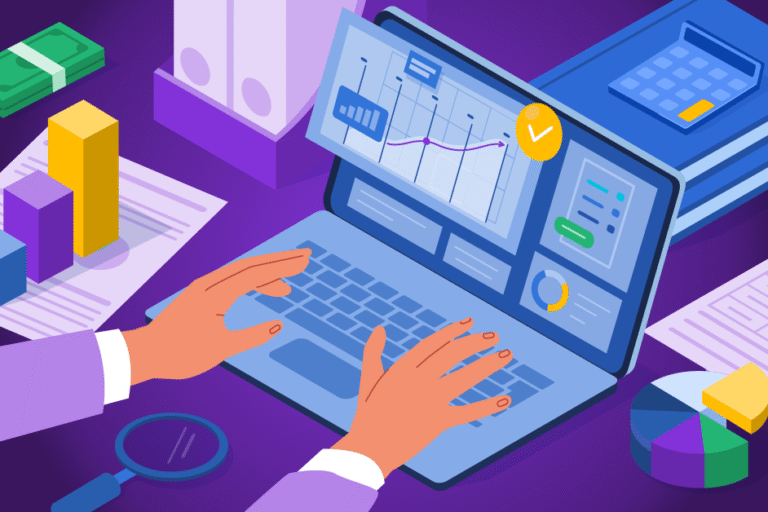
How To Choose Legal Billing Software for Small Firms
09/24/2025 By Clare Sheehan
Billing is often the most neglected part of a small law firm’s operations; it is also where small law firms tend to lose the most money. When the ABA listed its top five reasons lawyers lose money, the top two reasons both relate to the billing process: timekeeping and invoicing. On top of that, most “billing software” that’s meant to help often makes things worse by being too complicated, too generic, and unable to account for the nuances of legal practices.
Attorney time and billing software has come a long way in the last decade. But to benefit from using software, you have to find one that fits your needs, and that’s not necessarily the same one everyone else uses. Below, we’ll outline what you need to know before you go software shopping, including what problems the software should solve, how much it should cost, and questions to ask when determining whether software is a good fit for your firm.
Common Small Firm Problems Legal Billing Programs Can Solve
The challenges of billing are numerous for law firms, from complex tracking processes to the delay between the work and the payment. Those struggles mean that much more to a small business who is already limited by their headcount, budget, and caseload. Over time, these can result in a business dying by a thousand cuts, those “cuts” being client miscommunication, outstanding invoices, or the little bits of forgotten billable time that slip between the cracks.
Let’s take a look at some of the most common issues:
- Accurate Time Tracking | It’s common for attorneys to log their billable hours at the end of day or end of week. Unfortunately, research shows this is the easiest way to leave money on the table… but fortunately, software makes it much easier to track hours as you go. Tracking in real time may seem inconvenient, but the time spent doing it will be made up for by the added revenue. How much time gets missed by simply forgetting the work you did on Monday, because you’re recording hours on Friday?
- Consistent Operations | Billing is often the last thing anyone wants to do. It happens at night or gets pushed to “after this case settles.” But when your billing process lacks regularity, that stretches out payment delays, wears on client confidence, and creates more work on the back end for you. Software helps greatly with consistency, letting you automate the repetitive parts of your billing process — like client payment reminders!
- Client Communication | Some of the delay in getting paid comes from clients not understanding invoices, or even pushing back on certain expenses. Work descriptions like “1.6 hours – review email chain” leave lots of room for ambiguity and interpretation. Billing software helps you develop consistent, clear language around all your billable tasks, language that can easily be repeated across all your invoices.
- Visibility on Finances | Do you know how much money your firm has in outstanding invoices? If not, how easy is it to get that information? Oftentimes, getting that answer involves combing through multiple spreadsheets, cross-referencing invoices, and checking with fellow staff to make sure nothing was missed.
- Accounting Standards | This is one of the most sensitive parts of running a law firm. Any error risks a bar complaint, or at the very least, an unhappy client. And frankly, an Excel spreadsheet won’t cut it for this part of your firm’s finances. Legal billing software today is nothing like general accounting software; it’s built to handle the nuances of legal billing, from trust accounting to LEDES formatting.
- Redundancy | Invoice management for small law firms often falls on one or maybe two people. But what happens when they get sick? Is someone else able to handle invoicing, collections, and payment processing, or do you just have to wait it out? Having billing software makes it easier to understand how your billing process works, which in turn makes it easier to pick up where someone left off when needed.
To be clear, there’s nothing wrong with having these struggles as a law firm; after all, they’re common for a reason. For small to midsize firms, the billing process is most successful when it’s efficient and simple. But most importantly, your billing process needs to work alongside your practice. Let’s look at how billing software should help streamline your firm’s legal time and billing systems.
What Factors Should I Consider When Shopping for Legal Billing Software for a Small Firm?
For small to midsize firms, the choice of legal billing software is not a “plug and chug” sort of decision. If billing software is going to make your operations easier, it needs to have:
- Real-Time Time Tracking | The ability to record billable hours at any time, from anywhere, is critical for smaller firms. A more convenient tracking process not only makes it faster but also less likely you’ll miss any of the time spent working for your clients.
- Flexible Billing Structures | The ability to customize your billing workflows is more than a comfort choice. Client management features can help you maximize your client’s budget, set goals, and create a more transparent billing process overall.
- Trust Accounting | Using legal billing software like Bill4Time lets you easily set up trust accounting in compliance with IOLTA, ABA, and regulations in all 50 states.
- Invoice Clarity | Can clients tell what they’re paying for when they look at your invoices? Can you customize invoices to reflect your specific operations and language? Creating your own unique invoice templates helps you get them done quicker and maintain consistent billing practices.
- Ease of Use | Mind you, this applies to everyone — not just you but your clients, as well as fellow staff if you have them. If your clients have an easy time with your billing process, they’ll not only be happier but trust you even more with their matters.
- Collection Tools | Getting paid doesn’t have to feel like pulling teeth. By making use of online payment portals, automated reminders, and aging reports, you’ll have a much faster turnaround in your collections process.
- Quality Customer Support | Even the best software is only as good as its provider. Offering resources through a knowledge base, community discussion, and direct support is essential to success with a new billing solution.
Questions To Ask Yourself When Looking for Small Law Firm Billing Software
Before you go searching through the numerous legal billing solutions out there, it’s best to perform a self-audit of your process, so you know what you need your software to do. Every software provider focuses on different features and integrations, and while most options out there are good quality, that doesn’t necessarily mean they’ll serve your needs.
Here are a few good places to start your self-audit:
- Document your current process for tracking time.
- Do you do everything by hand, or do you use software of some type?
-
- How do you track time? (e.g. stopwatch, “guess-timating” based on the clock)
- How often do you actually record your hours? (e.g. end of day/week, real-time)
- How much time do you typically spend recording hours and generating invoices?
- Have a list of everyone who needs access to your billing process.
-
- Who drafts your invoices, and who sends them out?
- Who carries out collections and follows up with outstanding invoices?
- Who handles your trust accounting, and how do they manage it?
- Document the process between sending an invoice, and actually collecting payment.
-
- How long do invoices stay outstanding before they’re finally paid?
- What’s your current collection rate? How much revenue is in unpaid invoices?
- What happens when an invoice goes unpaid? Do you send reminders manually?
- Understand the client-facing experience of your billing process.
-
- How often do clients complain or delay payment because invoices are unclear?
- Do clients ever struggle with your payment methods? If so, why?
- How many different methods can clients use to pay you?
Red Flags To Watch for When Buying Time and Billing Software for Small Law Firms
Some things you just can’t look past when it comes to billing software. Here are the big ones:
- “Legal-adjacent software,” or software that’s not actually designed for the practice of law, is not a good investment. Accounting tools made for consultants or general business will not be able to handle the nuances of legal billing. In short, you’ll end up manually editing invoices every month.
- A hard-to-read, cluttered interface will make it much harder for you to adopt the software effectively. This is especially concerning if you have to teach multiple staff members how to use the software as well.
- Hidden fees are a red flag for multiple reasons: not only does it stretch your budget more than expected, but it’s a sign that the provider has something else to hide. If the software is worth the provider’s asking price, then why hide the actual cost of using it?
- Little to no automation is another bad sign for billing software. Much of the billing process can be easily automated; that’s one of the main benefits of using legal billing software. If you can’t schedule reminders, run recurring invoices, or set default time entries, you’re wasting time.
- No client payment portal means you’ll need yet another piece of software to make this solution work. If you wouldn’t buy a car that’s missing its steering wheel, then you shouldn’t buy billing software that’s missing a way for clients to pay you. Most clients want to pay online — seven out of ten, according to a 2023 survey by Onbe. Stop mailing PDFs and waiting for checks!
Best Ways To Test Law Office Billing Programs
Most providers of law firm invoicing software will offer free trials to let you see the software in action. How you use that trial can be the difference between knowing whether that software will truly be a good fit in the long run. Here’s how you can best take advantage of free trials.
- Run through your entire billing process, from start to finish. This means from recording the billable hours, all the way to collecting that final invoice. You’ll likely need to use a fake client so that you can walk through each step with the same exact case. While it still would be helpful to look at each function individually, it’s important to see how the software will work in practice, rather than just seeing what all the buttons do.
- If you have multiple staff members, give it to your least tech-savvy staff member. This is not meant to be a shaming tactic, but a true litmus test of the software. Quality solutions don’t always have to have a high learning curve. Especially for a small law firm, invoicing software should have the lowest barrier to entry possible. That means less time spent learning the software, training new staff how to use it, and trying to troubleshoot for issues that come up.
- Use their mobile app extension, especially outside of the office. Even if your work doesn’t require you to be constantly in and out of office, convenience and flexibility make using software that much easier. Make sure to use the software in multiple places, be it the courtroom, a client meeting, or even in the car (just not while driving, please).
- Ask the support team hard questions. Most legal software on the market is going to have the basic billing functions you need, so your questions shouldn’t be basic. Really drill into the details of your practice. Pay attention to not just how they answer the questions, but how much they’re willing to work with you rather than just give you the software and disappear.
- See what reports they offer — then pull them. Data and analytics are especially important for your finances. Are you able to see which cases are most profitable, what outstanding invoices you have, or generate quarterly reports? You’d be surprised what some software can (and cannot) do, so think through all the data points you need.
No matter how good a software’s reviews are, you should always take advantage of free trials. Having the “top legal billing software on the market” won’t mean a whole lot to you if it isn’t a good match for your workflows, operations, or the staff expected to use said software. A good fit isn’t about accolades, but accommodation: how that software works for you.
How Much Does Legal Billing Software for Small Firms Cost?
Most legal-specific software options range from $40-150 per month, per user. This price varies depending on the available features and the provider’s pricing structure. Most companies will offer multiple “tiers” of subscription pricing, with more expensive tiers offering more access to their software. For example, we at Bill4Time have four distinct tiers of pricing, with our highest tier offering the most options for customization, integration, and high-touch customer service.
While you may be tempted to look into free software, billing software is one thing you do not want to get for free. Even the best free legal billing software will probably require so many workarounds, manual fixes, and integrations that it will cost you more time than you expect — and as any attorney knows, time is money. On top of that, free software almost certainly will lack the security and compliance to meet ethical standards for your practice.
Think of software less as a cost, and more as an investment in your success: the right solution should make you more profitable, and pay for the software hand over fist.
Need Help Sorting Through Legal Billing Solutions?
For even the best lawyer, billing software provides a whole new level of convenience, flexibility, and efficiency. There are a lot of options for legal software today, and honestly, most of them are pretty high quality. But finding a good fit is about more than quality; you need a solution that integrates well with your practice. Customization, integration, and tech support all play into whether you can really make software work for your firm.
We provide all of this — and more — at Bill4Time. Thousands of lawyers across the country prefer our software for its efficiency, simplicity, and its ability to fit their operations. Whether you’re a solo practitioner or a large enterprise, criminal defense or family law, PC or Mac, our legal billing software can help streamline your billing operations so you have more time to focus on your clients.
Want to learn more about Bill4Time or billing software in general? Please take advantage of a free trial, or sign up for a free demo by clicking the button below. We’re more than happy to answer your questions, and we look forward to hearing from you!



